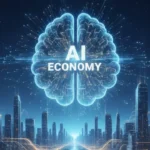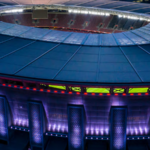“Facebook would strive to build a maximalist, interconnected set of experiences straight out of sci-fi — a world known as the metaverse”-Mark Zuckerberg
When Mark Zuckerberg told the world about his ambitious new initiative of bringing metaverse to life, everybody knew that it is a step in the future of virtual reality. While envisioning his company to transform into a metaverse company, he visualised it as the next generation of the internet.
The concept of the metaverse is not new. There are thousands of science fiction books, games like Fortnite, Roblox, and Animal Crossing: New Horizons, and movies that are set in digital worlds. Recently, the world got a glimpse of living in the metaverse when a digital artist Beeple sold his artwork for $69.3 million at an auction. This was bought by Vignesh Sundaresan and Anand Venkateswaran, whose digital names were Metakovan and Twobadour. The buyers plan to exhibit this completely digital artwork in a virtual monument which they call ”The Souk’
These are a form of metaverse only. But the actual metaverse is much evolved. Like the internet has become an indispensable part of human lives, so is metaverse has the potential in the near-future
Contents
What actually is a metaverse
Metaverse is a collective virtual sharing space. It is formed by a combination of physical reality, augmented reality (AR), and virtual reality (VR) to enable users to interact virtually. It will introduce digital elements in the real world and merge Internet with the virtual world.
Imagine attending a mega concert of your favourite rock star happening in New York. You could actually watch it live with your friend who is residing in London. Still don’t believe? Metaverse will create an environment in virtual reality where users with interact with others, in their digital avatars, in a purely digital space.
We might see virtual meetings moving from two-dimensional square boxes to a 3D space with people appearing as digital avatars.
This next-gen internet will blur virtual entertainment with the real-world economy, bringing virtual experiences and objects closer to reality.
Though metaverse will bring with it a whole lot of opportunities to explore, it will need a broader and more complex set of standards and protocols than the traditional Internet.
Bringing in more opportunities to explore
Metaverse is not just another technology. It is capable of bringing enormous opportunities to artists, individuals and also to people for whom education and entertainment opportunities are very limited.
Apart from being a successor of the modern internet, Metaverse will be the next evolution of digital platforms. It will make way for immersive experience through 2D apps in:
Commerce – It will unlock newer opportunities for buyers and sellers to connect in a new way. Sellers can leverage the Metaverse platform to give buyers a real product like feel just like they get in a brick-and-mortar store.
Near-real virtual experience – Today, you can hold a paid online event on Facebook, but imagine if you could turn it into a mixed-reality event. In that event, people have an option of attending in person or purchasing a virtual ticket.
Better physical world experience – Metaverse will enhance physical world experiences through the use of augmented reality and mixed reality. One of the examples is interior designers using this to giving their clients a real experience of their home setup post interior designing and planning.
While the metaverse is still in its infancy in many ways, it has suddenly become major business, with companies like Meta (formerly Facebook), Microsoft, Epic Games, Roblox, and others establishing their own virtual worlds or metaverses. Virtual reality platforms, gaming, machine learning, blockchain, 3-D graphics, digital currencies, sensors, and (in some circumstances) VR-enabled headsets are among the technologies used in the metaverse.
Despite its vast future promise, the metaverse is still in its infancy stage.
There are many challenges that need to be addressed before we start saying that Metaverse is now a reality.
Challenges
The computational infrastructure and power needs for a fully functional metaverse are enormous, and today’s metaverse is made up of disparate virtual worlds that aren’t connected in the same way that the original internet was.
The metaverse also brings with it regulatory and HR compliance challenges, such as potential addiction hazards or undesirable actions in the virtual world, such as bullying or harassment, about which there has recently been some concern. While there are still many difficulties to address, corporate leaders, policymakers, and HR executives should start their journey for successful metaverse collaboration.
Road ahead
Enterprises must not only guard against attempts to control or dominate the metaverse, but also actively seek to extend and open it up even further, for example, by pursuing open-source standards and software where possible, and by pushing for “interoperability” — seamless connections — between different virtual worlds.















